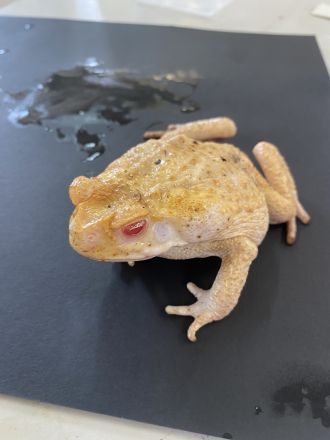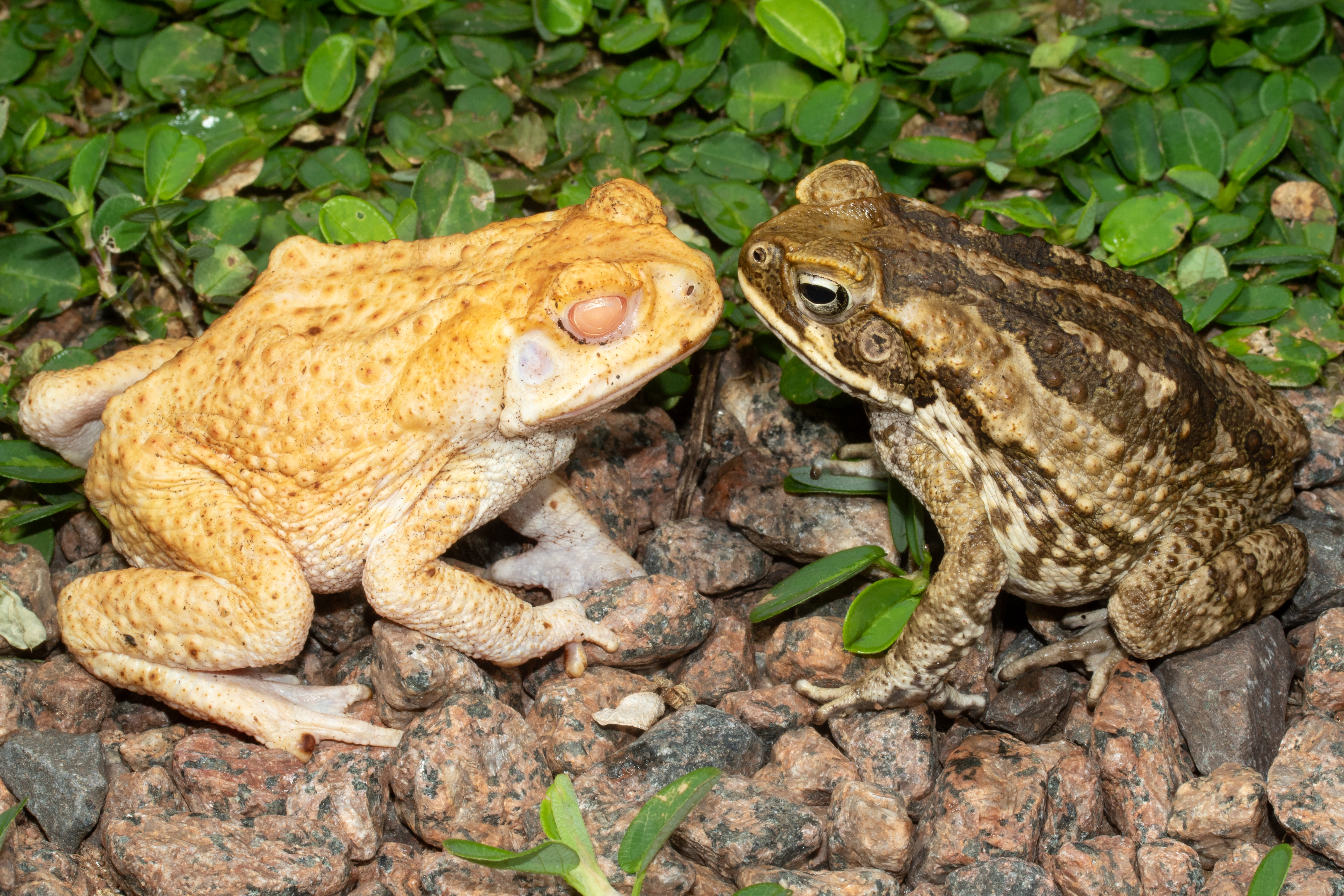Media release
From:
Knocking out genes to reveal drivers of natural selection on phenotypic traits: a study of the fitness consequences of albinism
Proceedings of the Royal Society B: Biological Sciences
Albino animals are thought to be rare in nature primarily because they lack camouflage and thus are more vulnerable to predation. We used CRISPR-Cas9 to challenge this assumption by creating gene-knockout albino cane toads and assessing their ability to compete with normally pigmented siblings in the absence of predators. Albino tadpoles and toads were ineffective competitors relative to their pigmented siblings, demonstrating that factors other than predation can explain the rarity of wild albinos. In addition to expanding scientific understanding of the costs of albinism, our study demonstrates the usefulness of CRISPR gene knockouts for answering fundamental evolutionary questions.
Multimedia










 Australia; NSW; NT
Australia; NSW; NT



